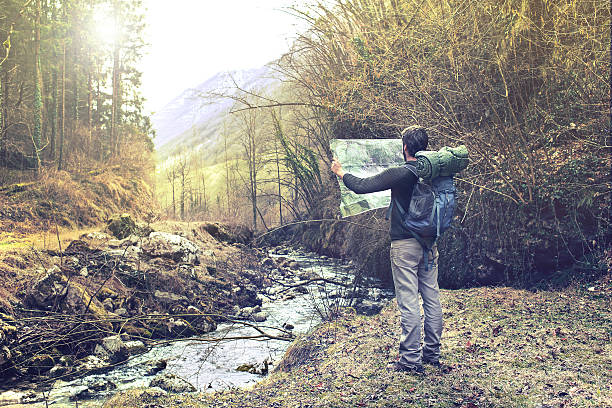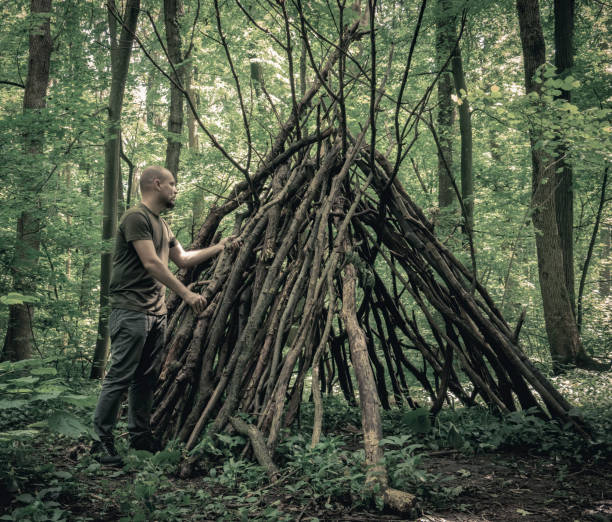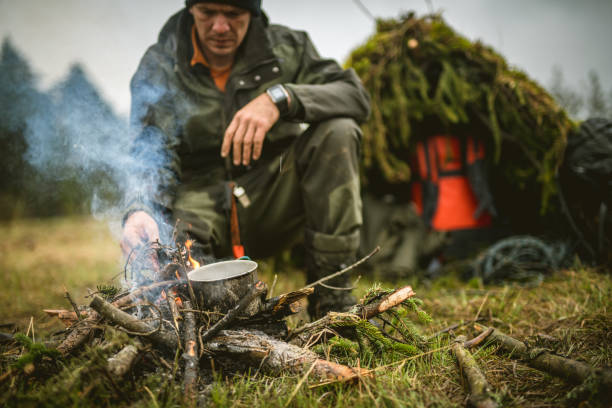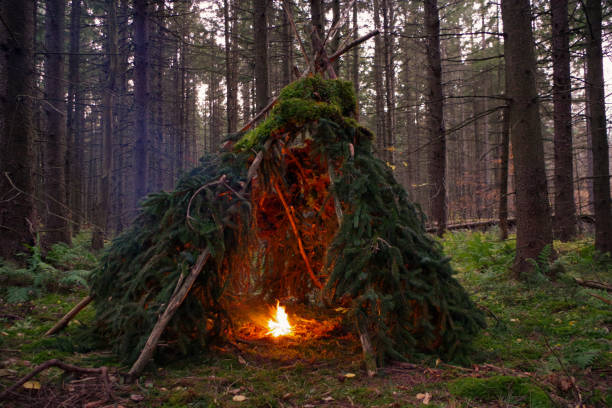Outdoor survival tips might not be considered by most people who enjoy the great outdoors, but the truth is that it could be a matter of life or death when the situation arises.
Getting lost in the wilderness can happen more quickly than many people realize, even to those who consider themselves experienced outdoors enthusiasts. One common scenario involves hikers deviating from established trails to explore unfamiliar terrain, only to find themselves disoriented and unable to retrace their steps. Additionally, adverse weather conditions such as fog, rain, or snow can obscure familiar landmarks and make navigation challenging, leading individuals off course. Even in tight areas, changes in the landscape due to natural phenomena like fallen trees or rockslides can disorient hikers and cause them to lose their sense of direction.

Another factor contributing to getting lost in the wilderness is overestimating one’s navigational abilities or underestimating the complexity of the terrain. Many people rely solely on GPS devices or smartphone apps for navigation without carrying backup maps or compasses. However, electronic devices can fail due to battery depletion, signal loss, or technical malfunctions, leaving individuals without reliable means of determining their location. Moreover, inexperienced hikers may need to recognize subtle cues, such as changes in vegetation or terrain features, that could help them stay on course, increasing the likelihood of becoming lost in unfamiliar surroundings.
Furthermore, psychological factors such as complacency or distraction can also play a role in getting lost in the wilderness. Hikers may become engrossed in the beauty of their surroundings or engaged in conversation with companions, inadvertently losing track of their route. Additionally, fatigue, hunger, or dehydration can impair decision-making and lead to poor navigation choices. In some cases, panic or anxiety sets in when individuals realize they are lost, making it difficult to think clearly and take appropriate actions to improve their situation. Therefore, recognizing the potential risks and staying vigilant while exploring the wilderness is essential for avoiding the disorientation and uncertainty of being lost in the great outdoors.

Being stranded in the great outdoors is a situation most of us hope never to encounter. However, unforeseen circumstances can arise during hikes, camping trips, or outdoor adventures, leaving individuals in precarious situations. Whether getting lost on a trail, encountering severe weather conditions, or facing equipment failure, knowing how to survive in the wilderness is crucial. Here are some essential outdoor survival tips to help you stay safe and increase your chances of being rescued:
1. Stay Calm and Assess Your Situation:
Panicking only worsens the situation. Take a deep breath, clear your mind, and assess your surroundings. Determine if you’re injured, the severity of the problem, and the resources you have at your disposal.
2. Prioritize Shelter:
Protecting yourself from the elements should be your immediate priority. If you have a tent or tarp, set it up to shield yourself from rain, wind, or extreme temperatures. Without shelter materials, look for natural formations like caves, rock overhangs, or fallen trees to provide temporary refuge.

3. Find a Water Source:
Hydration is essential for survival. Locate a nearby water source such as streams, rivers, or lakes. You can collect rainwater using containers or improvise solar still to extract water from vegetation if necessary.
4. Start a Fire:
Fire serves multiple purposes in a survival situation. It provides warmth, purifies water, cooks food, and can signal rescuers. Use dry tinder, kindling, and fuel to start a fire. Carry a waterproof lighter or matches in your survival kit, but if unavailable, utilize primitive fire-starting methods like friction or flint and steel.

5. Signal for Help:
Increase your visibility to potential rescuers by creating signals. Build a large SOS sign using rocks, branches, or anything contrasting with the environment. Reflective materials like mirrors or emergency blankets can also catch the attention of passing aircraft or search teams.
6. Stay Hydrated and Conserve Energy:
Conserve your energy by avoiding unnecessary physical exertion. Limit movement during extreme weather conditions to prevent sweating, which can lead to dehydration. Consume water and ration your food supply to sustain your energy levels until help arrives.
7. Know Basic First Aid:
Understanding basic first aid can be lifesaving in emergencies. Treat injuries promptly to prevent infection and further complications. Carry a compact first aid kit containing bandages, antiseptic wipes, pain relievers, and any necessary medication.
8. Stay Oriented and Navigate:
If you’re lost, try to retrace your steps and use natural landmarks or the position of the sun to orient yourself. Carry a map and compass, and familiarize yourself with navigation techniques before embarking on outdoor excursions. If you have a GPS device or smartphone, conserve battery by using it sparingly.
9. Stay Dry and Warm:
Hypothermia is a significant threat in cold environments. Keep your clothing dry and layer up to retain body heat. Insulate yourself from the ground using leaves, branches, or a sleeping pad. Change into dry clothes as soon as possible to prevent heat loss.

10. Stay Positive and Hopeful:
Maintaining a positive mindset can make a world of difference in survival situations. Focus on the tasks, stay hopeful, and believe in your ability to overcome challenges. Remember, rescuers actively search for you; every action you take brings you closer to safety.
In conclusion, outdoor survival requires knowledge, resourcefulness, and resilience. Following these essential tips and staying calm under pressure can significantly increase your chances of surviving and being reunited with loved ones. Preparation and situational awareness are crucial, so equip yourself with the necessary skills and gear before embarking on any outdoor adventure. Remember, survival is not just about enduring—it’s about thriving against the odds.
